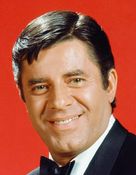
 Jerry Lewis, the fabulously successful comedian, actor and director who starred in movies, television, nightclubs and the Broadway stage, died at age 91 at his home in Las Vegas. His manager and family said that he “passed peacefully at home of natural causes with his loving family at his side”, but the probable cause was “heart failure” after a life of many factors associated with heart damage. It is unusual for a person with such a heart-damaging lifestyle to live more than half of his 91 years. Over the years, his heart was damaged by:
Jerry Lewis, the fabulously successful comedian, actor and director who starred in movies, television, nightclubs and the Broadway stage, died at age 91 at his home in Las Vegas. His manager and family said that he “passed peacefully at home of natural causes with his loving family at his side”, but the probable cause was “heart failure” after a life of many factors associated with heart damage. It is unusual for a person with such a heart-damaging lifestyle to live more than half of his 91 years. Over the years, his heart was damaged by:• three documented heart attacks, starting at age 34
• probably several undocumented heart attacks
• heart attack treatments with stents that can increase risk for other heart attacks
• a long history of smoking
• working in smoke-filled performance venues
• drinking excess alcohol
• eating a diet high in meat, fried foods, sugar-added foods and drinks
• addiction to pain-killing drugs
• diabetes
• pulmonary fibrosis and its treatment with prednisone
• obesity
• prostate cancer and some of its treatments
• depression
• a history of multiple bleeding episodes
I think that his heart eventually became too weak to pump blood to his brain, so he stopped breathing and died.
Remarkable Career that Began at Age Five
His real name was Joseph Levitch and he was born  in 1926 in Newark, New Jersey, to Russian Jewish parents. His father was a vaudeville entertainer and his mother was a piano player for a radio station. He started performing at age five with his parents in the Catskill resorts in upstate New York. He dropped out of Irvington High School in the tenth grade.
In the late 1940s, at age 20, he and Dean Martin formed the team of Martin and Lewis, with Martin singing while Lewis primarily made everyone laugh. A year after they began performing together, they were earning $30,000 a week at the Copacabana. Â The team broke up in 1956 and Mr. Lewis went on to a successful solo career, eventually writing, producing and directing his own films.
He was married twice: first at age 18 to Patti Palmer, a singer; and at age 56 to SanDee Pitnick, a Las Vegas dancer. Â In his later years he was perhaps best known for raising more than $2.5 billion for the Muscular Dystrophy Association through his annual Labor Day telethon that he hosted for almost 60 years until 2011.
His Extensive Medical History
Heart Attacks: In 1960, at age 34, he suffered his first heart attack while filming Cinderfella. In December 1982, at age 56, he was pronounced clinically dead from his second heart attack, but recovered. Â At that time, he had open heart surgery to increase blood flow to his heart. Â In September 2001, he was unable to appear at the London Palladium because he had to be rushed to the hospital for a heart problem. Â On June 11, 2006, at age 80, on a cross-country airline flight, he suffered a third heart attack. Â He had two stents placed in the arteries leading to his heart and was back on stage in a few weeks. However, stents are foreign bodies that increase risk for clots, further heart attacks and strokes, so he had to take anticlotting medication for the rest of his life.
Back Injuries and Narcotics: At age 39, he fell off a piano during a performance at the Sands Hotel in Las Vegas and broke bones in his spine that left him partially paralyzed with constant pain. Â He was able to perform only after taking Percodan, a potent painkiller. He said that he took up to 13 pills a day. Virtually all people who take Percodan opiates for an extended period get very sick when they try to stop taking them. Â Furthermore, the more you take, the less it helps to reduce your pain, so you keep on taking higher and higher doses to block the pain.
Bleeding Disorder and Stomach Ulcer: Â In October 1978, Lewis started bleeding from his nose, mouth, and ears. His friend, heart surgeon Michael DeBakey, treated Lewis for a stomach ulcer and had him hospitalized for 10 days to get him off the Percodan. When Lewis returned home, he said he dumped 2,000 pills in the toilet and never took pain killers again. He suffered severe back pain all the time. Â Stomach ulcers are caused by smoking, drinking alcohol and taking anticlotting pills such as aspirin, that are routinely prescribed to people who have stents to treat their heart attacks.
Back Implant Surgery: Â In 1997, at age 71, he had spinal surgery which helped control his pain a little bit. The pain returned and in April 2002 at age 76, he had a three-hour operation for the permanent installation of a remote-controlled device called a Medtronic “Synergy” neurostimulator. The procedure was a success and helped relieve some of his back pain.
Diabetes: In 1986, at age 60, he was diagnosed with diabetes, which is treated with drugs to lower high blood sugar levels. Â Sometimes these drugs lower blood sugar levels too much. Â In June 2012, he was rushed to the hospital with low blood sugar only minutes before he was to present an award to Tom Cruise at a New York Friars Club event. Â He had many lifestyle factors that increase risk for diabetes, including:
• overweight
• smoking
• an unhealthful diet
• not getting enough sleep
• not exercising
• taking the steroid drug, prednisone, to treat lung damage caused by his massive amount of smoking. Prednisone causes weight gain and markedly raises blood sugar levels in everyone who takes it.
Prostate Cancer: In 1992, at age 66, Lewis was diagnosed with prostate cancer. Diabetes and smoking each are associated with increased risk for prostate cancer. Â More and more studies have come out showing that prostate cancer may possibly be a metabolic disease associated with an unhealthful Western diet and lifestyle. All North American men will get prostate cancer if they live long enough, while the incidence of prostate cancer in rural China is below four percent. Â When the rural Chinese men move to the large cities and eat the typical Western diet, their rate of prostate cancer increases significantly. More at Prostate Cancer, Diet and LifestyleÂ
Infections: In 1999, at age 73, Lewis had to abandon an Australian tour because he had viral meningitis. Diabetes impairs a person’s immunity to increase risk for infections anywhere in the body. Â In June 2017, he was hospitalized in Las Vegas after developing a urinary tract infection. Â His diabetes, the treatments he received for prostate cancer and the prednisone used to treat his lung disease each markedly increased his risk for infections.
Pulmonary Fibrosis: In May 2001, the time of his third heart attack, he was so short of breath that he turned blue. He was diagnosed with pneumonia caused by a serious chronic lung disease called pulmonary fibrosis, and his family was told that he had only a ten percent chance of surviving. Much of his lung tissue was replaced by scars. Â He was terrified. His former partner, Dean Martin, had died of lung failure in 1995 at age 78. He and Dean were both heavy smokers. Nobody can smoke five packs a day of cigarettes and get away with it. Smoking cigarettes increases risk for heart attacks, severe lung scarring and just about every type of cancer. Lewis’s lungs were so badly damaged that to save his life, his doctors were forced to treat him with prednisone, a drug that:
• caused him to gain more than 50 pounds
• shot his blood sugar levels up which aggravated his diabetes and almost killed him
• caused depression and thoughts of suicide
• caused osteoporosis that made his chronic back pain even worse
He had to be hospitalized to get him off the prednisone so he could return to work.
Depression: Â He developed debilitating depression from the massive doses of prednisone he took to treat his pulmonary fibrosis. Â Prednisone can cause depression in people who have no other risk factors for that disease.
Probable Cause of Death
While no specific cause of death was listed in his obituaries, the most likely cause is heart failure from a lifetime of repeated heart damage. Â Your heart muscle can be damaged by blocked arteries, infections, smoking, alcohol, an inflammatory diet, lack of exercise, overweight, high blood sugar, high blood pressure and so forth. When you suffer a heart attack, a part of the heart muscle is deprived completely of oxygen, dies and is replaced by scar tissue that is unable to contract to push blood through your body. Â With each subsequent heart attack, you lose additional parts of your heart muscle until the heart becomes so weak that it is unable to push enough blood through your body. Â Your brain can live for only about three minutes without oxygen, so when your brain suffers from lack of oxygen, you stop breathing and die.
Lessons from Jerry Lewis’s Medical History
• Do not smoke and do not live with smokers.  Even living in a house that was formerly inhabited by smokers (“third-hand smoke”) can increase your risk for cancers and heart attacks.
• Do not drink alcohol regularly at any dose
• Try to exercise every day throughout your life
• Eat a healthful diet with plenty of fruits, vegetables, nuts and other seeds; restrict sugar-added drinks and foods, red meat, processed meats and fried foods
• Do not become overweight
• If you need to take medication that causes weight gain, such as prednisone, work to return to your healthful weight as soon as possible
• If you must take strong pain medication, work with your doctor or a pain management specialist to minimize the dosage and try non-addicting alternatives. If a person takes narcotics long enough, he or she will be at risk  for not being able to stop taking the drugs without being hospitalized.
March 16, 1926 – August 20, 2017